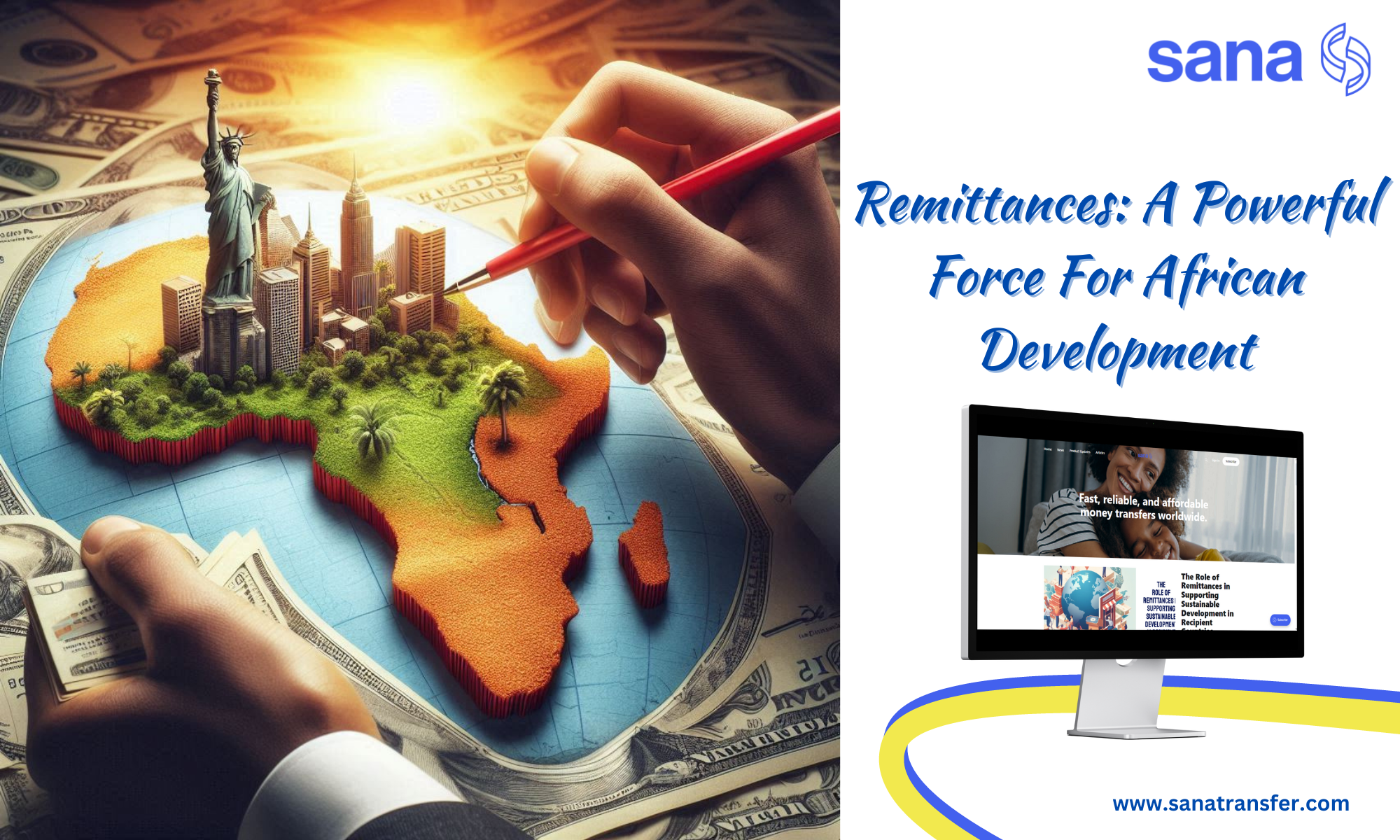Remittances: A Powerful Force for African Development

Do you know that the total amount of money transferred to Africa through remittances in recent years has surpassed the amount if money received through foreign aid?
This means money sent back home by Africans working abroad has become a bigger source of financial inflow than traditional foreign aid.
Remittances are essentially money sent back home by migrants living and working abroad. These funds are often sent to support family members and contribute to their well-being.
In Africa, remittances have become a crucial source of income, playing an increasingly important role in the continent's development.
What Are The Reasons for the Rise of Remittances To Africa?
The reasons why remittances have become a powerful force for development in Africa is due to several key factors including:
The Growth of the African Diaspora
In recent years, we have had a spike in the number of Africans migrating abroad seeking. These people migrate seeking better work opportunities because of the limited job prospects at home. Many Africans look for better employment options in developed countries.
Another reason why Africans are moving abroad is for better education and living standards. With access to better education and a higher quality of life, Africans are motivated to move abroad.
Read Also: Emerging Technologies In Global Money Transfer
These individuals then get to send financial support back home to their families, loved ones and small businesses.
Increased Economic Activity
Africans are naturally industrious people and given the right environment will make great use of their resources. The Africans in the diaspora are becoming more noticeable economically attracting more income disposable income as they settle and establish themselves abroad. This allows them to send more money back home.
Technological advancements.
Technological advancements have also made remittances easier and cheaper. Fintech solutions like mobile money platforms and online transfer services offer faster, more convenient, and lower-cost ways to send remittances than traditional methods.
These factors together have driven a significant rise in remittances to Africa.
Read Also: Optimising International Money Transfers As Eid al-Adha Approaches
What Are The Impact of Remittances On African Economies?
Remittances are having a profound impact on the continent's economies. This flow of funds goes beyond simply supporting families; it's fueling development at the grassroots level in the following ways:
Direct Impact on Families and Communities
Remittances provide a vital source of income for families, allowing them to afford better housing, food, and clothing. This can lead to a significant improvement in overall living standards.
With increased financial security, families can prioritize education for their children and access better healthcare services. This investment in human capital creates a more skilled and healthy workforce for the future.
Remittances are often used to invest in housing, small businesses, and agricultural ventures. This creates jobs, boosts local economies, and fosters financial independence within communities.
Macroeconomic Benefits for African Nations
Remittances bring foreign currency into African countries, strengthening their financial reserves. This stability allows governments to invest in infrastructure and social programs.
Increased consumer spending fueled by remittances stimulates local businesses and creates jobs. This contributes to overall economic growth and development.
Remittances vs. Foreign Aid
Unlike foreign aid, remittances come with fewer bureaucratic hurdles as aid programs can be bogged down by complex procedures and conditionalities. Remittances, on the other hand, are direct transfers, reaching recipients faster with less red tape.
Remittances also have more direct impacts on local communities as aid can get lost in administrative costs. Remittances, directed towards specific families and communities, have a more immediate and tangible impact on local development.
Challenges And Considerations
While remittances are a powerful driver for development in Africa, some challenges need to be addressed to maximize their impact and ensure long-term sustainability. These challenges include:
The Cost Factor
A significant hurdle for remittances is the high transaction fees often charged by many money transfer services. These fees can eat into a significant portion of the funds being sent, reducing the overall impact on families and communities. Finding ways to promote competition among money transfer service providers can help drive down costs.
Also, embracing innovative technologies like blockchain and other fintech solutions is guaranteed to make remittances faster, cheaper, and more accessible.
Reducing transaction fees can significantly increase the volume of remittances flowing into Africa, further boosting development efforts.
Economic Fluctuations
Economic downturns in the host countries where African migrants work can have a ripple effect, leading to a decline in remittance flows.
Promoting diaspora engagement by building strong connections with them can foster a sense of long-term commitment to supporting development efforts back home.
Read Also: Optimising Money Transfer to War-Torn Countries
Building a Sustainable Future
While remittances are crucial, the ultimate goal is to create a sustainable future where African economies are less reliant on external financial flows.
To achieve this the system has to invest in job creation by making policies and initiatives that create jobs and promote economic diversification. This will reduce dependence on remittances in the long run.
Furthermore, empowering local businesses. especially small and medium-sized enterprises (SMEs) can create a vibrant private sector that drives sustainable economic growth.
Final Words
Remittances have become a powerful driver of African development, surpassing foreign aid in some cases. These financial lifelines from diaspora communities support families, stimulate local economies, and contribute to national growth by fostering financial inclusion, empowering local businesses, and investing in education and infrastructure.
Maximizing the impact of remittances requires strategic actions, such as reducing transaction fees and promoting innovative transfer methods. Engaging with diasporas for long-term commitment can ensure sustained support. A diversified development strategy, focusing on job creation and a thriving private sector, will enable African nations to build a sustainable future. By harnessing remittances and empowering its diaspora, Africa can unlock its full economic potential and chart a course towards prosperity.
Are you an African in the diaspora, especially in Canada? Do you need a sure remittance partner to help you send money to your loved ones and business partners at home and around the world?
Then you need no one else but SanaTransfer. With the best technology driving speed and ease of use, you can rest assured that your remittances meet the needs they were meant to satisfy.
Log on to our website to signup or download our mobile apps for Android and iOS devices and enjoy the easier way to send money home.
Read Also: Traditional Money Transfer Methods Vs Modern FinTech Methods
